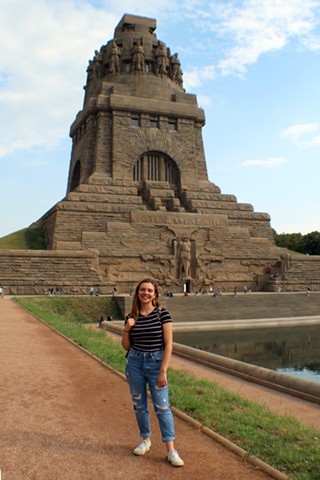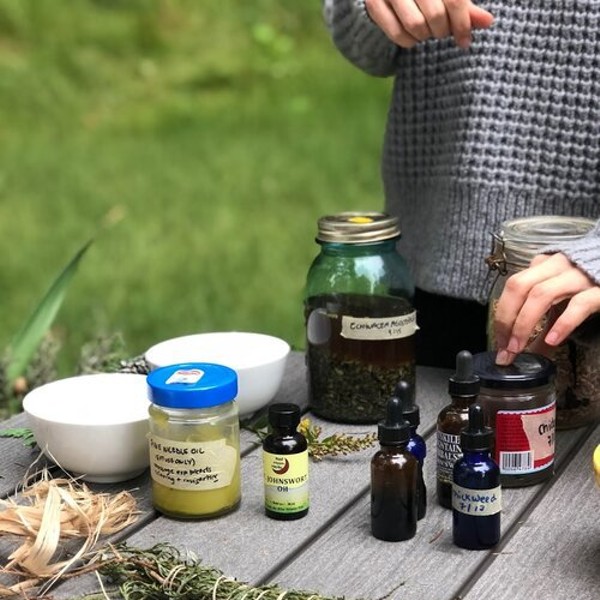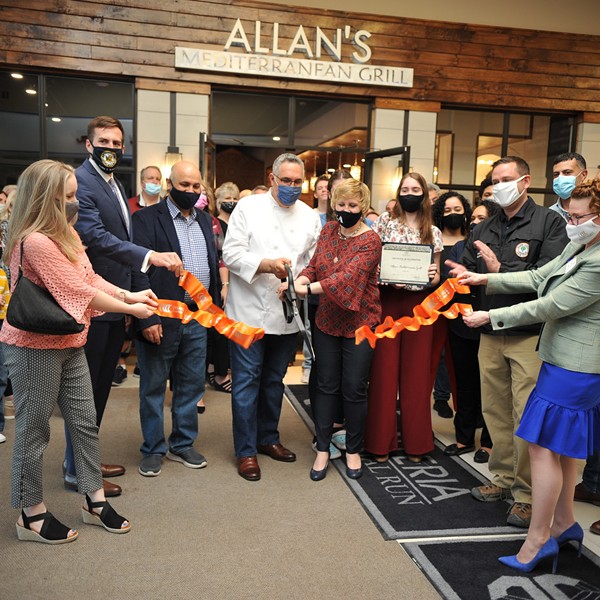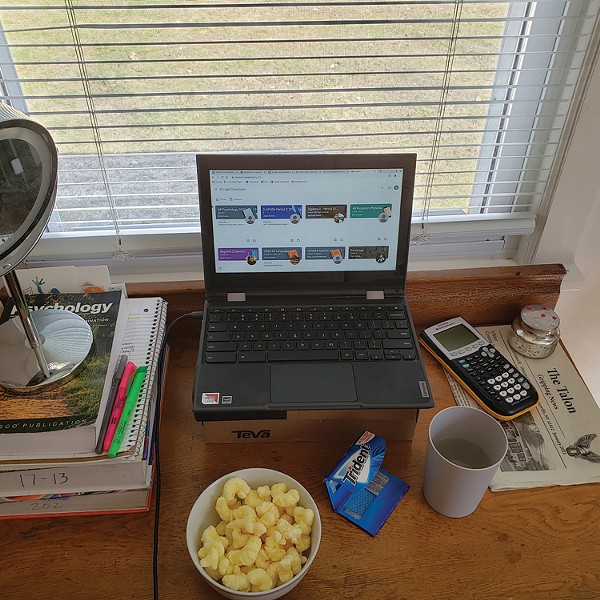Sew & Vac, a sewing and vacuum cleaner sales and repair store owned by the Frisenda family, has jumped to the front lines of the Hudson Valley’s defense against the COVID-19 outbreak. The Poughkeepsie store halted its normal operations on March 19 due to the escalating public health crisis and switched gears to making cotton face masks for local healthcare workers in need.
Hospitals across the country—and especially in New York State, the national hub of the epidemic—have been especially affected by the global shortage of N95 face masks, which are the most effective in filtering out small viral particles, and some health care providers have resorted to using homemade masks. Corporations like Hanes and 3M have started producing face masks to fill the shortage in hospitals, but it could take weeks before they are available. In the meantime, sewing groups, seamstresses, and regular people with just a needle and thread have started making masks to address the shortage.
The CDC has warned that the efficacy of non-FDA-approved face protection, such as scarves, bandanas, or homemade masks, in preventing the spread of COVID-19 is unknown at this point, but may be used as a last resort. CDC also recommends that homemade masks be used in combination with a face shield that covers the entire front (extending to the chin or below) and sides of the face. This study, published in Disaster Medicine and Public Health Preparedness, found surgical masks three times more effective than homemade cotton masks, though “both masks significantly reduced the number of microorganisms expelled” by study participants.
Full Seam Ahead
Kevin Frisenda, son of Sew & Vac Inc. founder Bob Frisenda, says his family felt a call to action. “We were going to shut down when I found out that the hospitals were running out of masks,” he says. “On my storeroom floor, I have 25 to 30 sewing machines, and knowing that I’m capable of doing this, so why wouldn’t I?”
The process is simple. Two layers of 100-percent cotton fabric wide enough to cover the nose and mouth, elastic to loop behind the ears and hold the mask in place, mechanic’s wire to mold the mask to the contours of the face, and a pocket for a filter. Frisenda recommends using HEPA vacuum cleaner bags as a filter for a second line of defense. (Turns out they had all the materials they needed in-house.) The masks can be washed and reused, making them more sustainable than N95 face masks. Frisenda admits that hand sewn masks may not be as effective as the typical surgical masks in protecting health care workers, but he says “it’s better than nothing.”
Frisenda estimates that in the past week, he and his altruistic band of employees and customers have already made around 200 masks, which were sent to Vassar Brothers Medical Center, Northern Dutchess Hospital, and local healthcare workers.
Sew & Vac’s efforts have not gone unnoticed. “I’m getting a lot of calls,” says Frisenda. “I can’t make the masks fast enough.” He believes that Sew & Vac will soon begin to run out of essential materials, like the elastic that loops around the ears to keep the mask in place.
In an attempt to keep up with the growing demand for face masks, the Frisendas have turned to Facebook to educate the public on how to make their own masks using video tutorials.
Sew & Vac has received offers of cash donations, but they have asked that those willing to give money would direct their charity towards local hospitals like Vassar Brothers Medical Center Foundation and Northern Dutchess Hospital.
“I believe in reciprocity,” says Frisenda. “My family has been in this community since 1975. We’re just trying to help and do our part.”
A Growing, Sewing Movement
Sew & Vac isn’t the only local business rising to the occasion. Unshattered, a local nonprofit that helps women overcoming addiction through skills training, has paused their upcycled handbag operations and shifted their efforts to sewing face masks to help fill the statewide shortage. The resilient group of women have been meeting with local hospitals and surgeons to determine how to design usable face masks.
The effort is strictly volunteer-based, with seven of Unshattered’s employees opting to come into work and produce the face masks. These employees are still being paid wages for their time, and Unshattered is asking for donations to help continue their salaries. You can also support them by shopping their collection of handbags and accessories online.
Kelly Lyndgaard, founder of Unshattered, estimates that the team makes a few hundred masks a day. The masks will be sent to Vassar Brothers Medical Center, and when their need is filled, the organization will begin sending the masks to other hospitals around the region. Unshattered has received over 10,000 requests from local hospitals, nursing homes, and physical therapist offices, and has since called on the local community to help them fulfill this need. Those wishing to donate masks can drop them in the Unshattered dropbox at 1064 Route 82 in Hopewell Junction.
Rocio Silva, who owns R. Ramos Upholstery in Newburgh, has been working with her teenage son and daughter to make cotton masks similar to those from Sew & Vac, using upholstery fabric left over from previous projects, such as the Broadway play “Harry Potter and the Cursed Child.” Silva, who also works with Unshattered and another tailoring shop in Newburgh, is hopeful that they can make up to 200 masks a day for local hospitals and medical facilities.
Mask Collection
Neighborhood 209 and Circle Creative Collective are calling on their communities to drop off homemade face masks, as well as any N95 masks people may have lying around at a collection site in front of the Neighborhood 209 (formerly Skate Time 209) in Accord. The masks will be sent to local volunteers, nursing homes, and nurses working at local hospitals.Their Facebook page, Sewing Face Masks For Ulster County, provides guidelines for how charitable locals can safely and properly make masks.




















